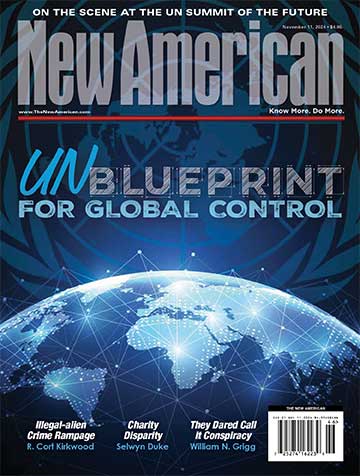
But is Huntsman really who he claims to be?
This is the question with which we must concern ourselves. As we will see, just a brief look at Huntsman’s utterances and deeds discloses in no time that, in his case, appearance is eons apart from reality.
To Huntsman’s credit, as Governor of Utah he presided over tax cuts — sales taxes especially — and a simplification of the overall tax code. For this, the Cato Institute lavished praise upon him. Yet lest we hastily exploit this fact as proof of his commitment to smaller government, we would be well served to note that the very same libertarian-friendly think tank criticized Huntsman for having “completely dropped the ball on spending, with per capita spending increasing at about 10 percent annually during his tenure.”
Huntsman believes in human-caused “global warming,” and in 2007, he combined forces with the Governors of others states to sign the Western Climate Initiative, a bill oriented toward reducing the generation of greenhouse gasses. This, it is worth observing, would have been bad enough if it was just a matter of the governments of individual states asserting their sovereignty over an issue. But Huntsman does not have the “states’ rights” card at his disposal in this case. As it turns out, he appeared in an ad for the organization Environmental Defense, an ad in which he demanded that the federal government “act by capping greenhouse-gas pollution.”
That Huntsman has now retreated from this position seems more than coincidental. However, his stated reason for revising his earlier view is telling: “Much of this discussion [concerning ‘cap-and-trade’] happened before the bottom fell out of the economy, and until it comes back, this isn’t the moment [for ‘cap-and-trade’].” (Emphases added.)
Notice, for Huntsman, the problem with so-called cap-and-trade hasn’t anything whatsoever to do with liberty; the problem — presumably, the only problem that would prevent us from pursuing this policy — is that we lack the material resources to effectively implement it. “Five years ago” we could afford to permit the federal government to conscript American taxpayers into the service of subsidizing this gargantuan policy; today we cannot. However, once our economy bounces back, we will then be able to afford it once more!
On immigration, Huntsman is no different from his colleague and rival, Rick Perry. Perry, everyone now knows, permitted illegal aliens pursuing a higher education at any of Texas’ public universities and colleges to pay in-state tuition rates. Less well known is that Huntsman was equally generous with the resources of Utah’s citizens toward the illegal aliens in his state. As Governor, he promised to veto any bill that would deprive the illegal residents of Utah of the benefit of in-state tuition rates should they go to college. Huntsman also signed a bill granting illegal aliens “driving-privilege cards.” Under this bill, Utah’s illegal residents would be permitted to obtain driving “privileges,” but they would not be permitted to use these licenses as forms of identification.
American liberty is inseparable from the rule of law. Indeed, without the rule of law, there is no liberty. Those who would govern should know this better than anyone. Thus, when someone like Huntsman, who is entrusted with the heavy responsibility of safeguarding the law, not only fails to do so but actively undercuts it, he reveals himself to be a threat to our liberty.
More recently, Huntsman expressed his desire to break apart our nation’s largest financial institutions, those banks that the conventional wisdom deems “too big to fail.” That this is no mere whim on his part, that it is something to which he has given considerable thought, is born out by the fact that he has actually designed a plan to bring it about. According to Huntsman, the only way we can avoid taxpayer-subsidized bank bailouts of the sort to which we were subjected in 2008 is to legislate out of existence these banks that are, supposedly, “too big to fail.” Because, in his estimation, the banks at present remain “too big to fail,” the bailouts of 2008 were necessary.
Given these aspects of Jon Huntsman’s record, it is no wonder that the left-leaning Huffington Post described him as a Republican “with moderate positions who was willing to work substantively with” President Obama.
As far as his approach to foreign policy is concerned, although it is true that he opposes the Patriot Act and seeks to bring American military personnel home from the Middle East sooner rather than later, it would be a mistake to conclude from this that Huntsman is any less of an “interventionist” than his more hawkish Republican colleagues. Prior to being confirmed as President Obama’s Ambassador to China, Huntsman promised that, if his confirmation went through, he would see to it that there would be “robust engagement” with China vis-à-vis the issue of “human rights.” He also advocates an American/China alliance in pressuring North Korea to abandon its nuclear weapons program.
Our analysis need go no further, for our conclusion is inescapable: Jon Huntsman is an apostle of Big Government.



